S. Gounod opera "Romeo and Juliet"
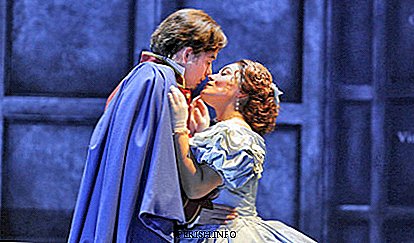
W. Shakespeare's tragedy about love, which flared up with a bright flame in the dark haze of clan enmity, at all times attracted the attention of people who devoted their lives to art - composers, critics, directors and scriptwriters, theater directors. However, the reading that gave this essay Charles Gounod, allows you to look at a famous story from a different angle, deeper, intimate, affecting the most sentimental strings of the soul. The opera Romeo and Juliet was one of the most successful works of the French composer in the relevant genre and to this day regularly becomes part of the repertoire of many famous theaters.
Summary of the opera Gounod "Romeo and Juliet"and many interesting facts about this work read on our page.
Characters | Vote | Description |
| Juliet | soprano | daughter of Veronese Count Capuleti |
| Romeo | tenor | son of Count Montecchi, heir to the noble family of Verona |
| Mercutio | baritone | faithful comrade Romeo |
| Paris | baritone | a young man from the Kapulet family, named Juliet's fiancé, young graph |
| Tybalt | tenor | Capulet's nephew |
| Father lorenzo | bass | a priest |
| Gertrude | mezzo-soprano | Juliet's maid, nurse |
| Stefano | mezzo-soprano | pomero romeo |
Summary of "Romeo and Juliet"
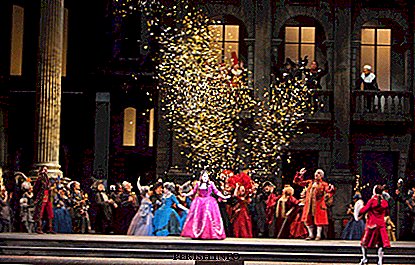
Count Capulet gives a ball in honor of his beloved daughter. Guests gather in the courtyard of a luxurious palace, all the guests are wearing masks. Romeo, the son of the main enemy of the Capulet family, is also secretly on holiday. Among the noisy crowd, the young man notices Juliet and falls in love with her at first sight. He decides to talk to a beautiful girl, but she does not allow to make acquaintance. Romeo expresses admiration for the young lady, removes the mask and shamelessly speaks about her born feelings. At this time, Tybalt discovers that Juliet speaks with a stranger, learns in the interlocutor Romeo. A quarrel is being initiated, but the owner of the house stops the attempts of young people to darken the triumph of strife and hatred. Juliet and Romeo are forced to part, everyone is gnawed by the feeling of forbidden temptation and the bitter realization that love is hindered by long-standing hostility between families.
Evening comes, Romeo under the saving cover of twilight hurries under the window of her beloved, Juliet appears, and love oaths sound. Romeo promises that they will get married the next day. Gertrude calls the pupil, and she in a hurry leaves the balcony, begging Romeo to be cautious and make sure that the servants do not notice it.
With the dawn, Romeo is in the cell of Father Lorenzo and asks him to hold a wedding ceremony. After finding out who the chosen one of Montague is, the priest is lost in doubt, but does not dare to resist the light feeling. The monk hopes love will help reconcile the clans and end the annoying enmity. Lovers get married. At this time, Stefano appears at the Capulet Palace and begins to sing a mocking song about a dove escaped from the family nest. A new conflict is brewing: the servant Capuleti does not intend to ignore the provocations. Mercutio appears and says: to threaten the young page is dishonorable. Hearing this, Tybalt is going to teach Mercucio a lesson, but Romeo, who was close by, stops the fight. He speaks of absolute happiness, which mutual insults and offenses can no longer darken. Having amazed at Romeo's mood, Mercutio himself summons Tybald himself and is killed by his sword. In an effort to avenge the death of a friend, Romeo fights with the offender and wins. The final wish of Capulet's nephew is the wish that Juliet should become the wife of Paris. Arriving at the scene of the murder, the duke of Verona announces the decision: to expel Romeo from the city. The remaining members of the warring families issued a warning: it is not allowed to violate the law.
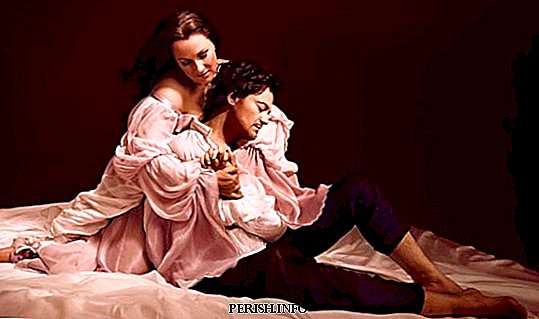
At night, Romeo enters the room of the newly-born spouse, talks about the incident and the need to urgently leave Verona with the dawn of dawn. In the morning the earl announces to her daughter: she must be the wife of Paris. In desperation, the girl rushes to the monk Lorenzo. That gives an elixir, having drunk which, the person plunges into lethargy. Juliet swallows the drug and falls unconscious. The news of the death of the heiress spreads through the city, the body is placed in the family crypt. Romeo soon arrives, he believes that his beloved is dead, and drinks poison. Suddenly, Juliet, waking up from her dream, sees the dying husband and, rejecting life without him, thrusts a sharp dagger into his chest. With words of forgiveness, both die in each other’s arms.
| Duration of performance | ||
| I - II Act | Act IIII | IV - V Act |
| 70 min | 40 min | 70 min |
A photo
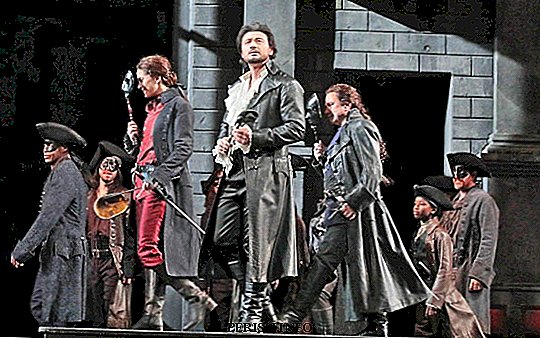
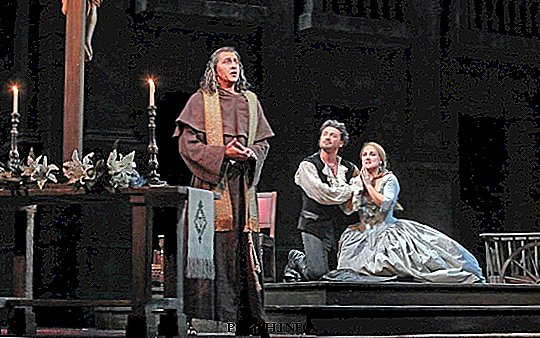
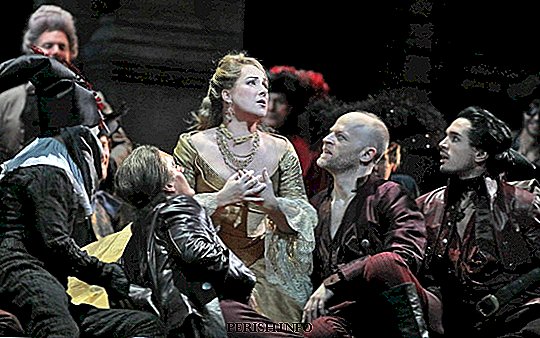
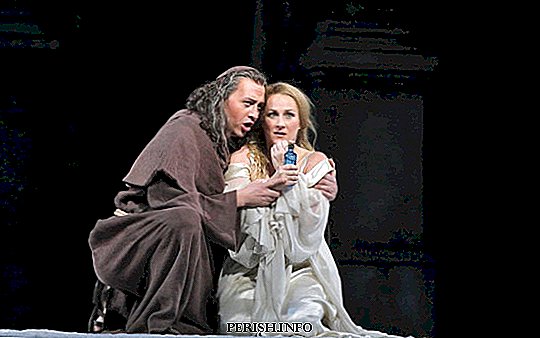
Interesting Facts
- French art historian and composer Alfred Bruno noted extreme courage Charles Gounodshown them in the work on the opera. It lies in the fact that the author was not afraid to speak frankly about love with people of the so-called high society, where ridicule, intrigue, sarcastic remarks reign. When Gounod was just beginning his career, such an audience met his works with arrogant challenge, criticism and even contempt.
- Paul Dukas (French critic, teacher and composer) noted: Gounod did not create characters at all, he tried to display with the help of music an echo of sincere feelings that each person faces. The author chose to focus on expressing, using musical means, the sentimental side of the relationship between the characters, while retaining the exact following literary basis. Perhaps this is why opera has found a response and went down in history as the most popular work in the opera genre based on the tragedy of Shakespeare, the very story that is not sadder in the world.
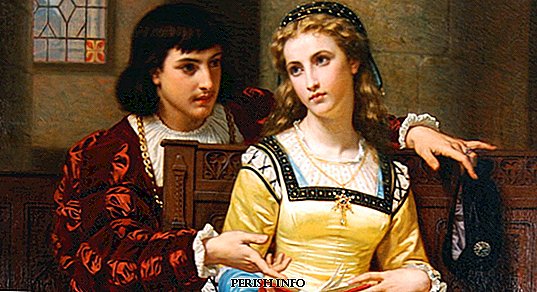
- As many European directors note, Gounod’s opera is favorably different from the creation Bellini "I Capuleti e i Montecchi". The French composer did not take liberties with regard to the plot, tried to adhere to the original text of the English classic as precisely as possible. In this Gounod, despite the general mood of the plot of the canvas, managed to write music, which at certain moments was characterized by incredible rigidity and drama. It is these features that are captured in Shakespeare’s play itself.
- The difficulty in staging the opera is that the leading actors must be in love with each other or at least balance on the edge. Gounod created such music in which the slightest falsehood in the voices of singers creates distrust and can spoil the overall impression. Even skilled artists risk falling into this trap, masterfully created by a French composer.
- Charles Gounod "outlined" his Juliet, whose image is different from all that were created earlier or later. Perhaps the author is as close as possible to the vision that Shakespeare himself possessed, prescribing the identity of the young heiress of the powerful clan. Juliet in the opera Gounod - incredibly complex and bright nature. She is only 14, in the first act she appears as a young girl who does not even think about marriage, she is light, naive, weightless. Here comes the second action, and the viewer sees that the feelings that have arisen in the soul of a teenager are much stronger than those that arise at a more conscious age. Juliet, the performer of the parties, initially faces a difficult task. She needs to convey both the enthusiastic mood inherent in the carefree time of her early youth, and heartfelt experiences that can cover with an irreconcilable avalanche all the arguments of reason.
- The premiere of the opera was decorated with the presence on the stage of the singer Marie Carolina Miolan-Cavallo. She also performed the parts of Juliet in 1873, when the vocalist herself was already 45 years old. In the productions of the 80s of the XIX century another diva took part - Adeline Patti. The leading role in the opera helped the famous Italian to reveal a deep talent for the embodiment of the tragedy. The singer has proved that she is able not only to get used to comedic images, but also to appear in a different role.
Best numbers
"Dans ce reve, que m'enivre"- Juliet's arietta from Act 1. Written in the rhythm of a waltz. Light," air "music and the corresponding vocal part draw the image of a girl living in a dream world, carefree, not burdened with sorrows and passions.
"Dans ce reve, que m'enivre" (listen)
"Ah! Leve-toi soleil"- Cavatina Romeo from Act 2. The young man dreams of a secret meeting with his beloved, which should take place at dusk. Romeo is looking forward to the sunset to get into the garden and quickly find herself under Juliet's balcony.
"Ah! Leve-toi soleil" (listen)
"Nuit d'hymenee, o douce nuit d'amour"- a duet of Juliet and Romeo from the 4th act. An expressive, sensual hymn to the triumph of love, the key number of the opera, the apogee of lyrical mood with notes of anxiety, foreshadowing tragic events.
"Nuit d'hymenee, o douce nuit d'amour" (listen)
History of creation
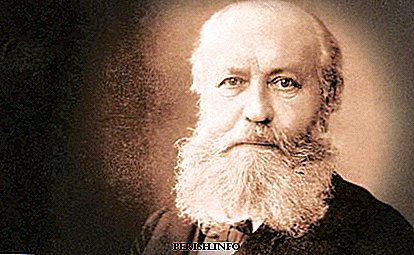
Gounod began writing opera in 1865, settling on the Mediterranean coast, in the small town of Saint-Raphael in France. Sketches and drafts of scores were ready in an incredibly short time: the author worked from early morning until late evening, not feeling tired. Inspiration and enthusiasm was accompanied by an incredibly picturesque surrounding landscape. The finishing scores were completed in Paris. Rehearsals began in mid-August.
The libretto is written by Michel Carré and Jules Barbier. The same playwrights worked on the libretto for "Faust“Having taken up the writing of the poetic text for Gounod’s opera, they consciously tried to repeat the success, and this excessive zeal played a cruel joke on the piece. In Faust, meticulously written secondary characters very well“ balance ”bright, charismatic images of the main protagonists. a similar reception in Romeo and Juliet, the librettists eventually got the opposite result: choral parties and remarks of servants began to be perceived as something intrusive, too artificial and pathetic, something that distracts from the operative drama of two lovers. The opera Romeo and Juliet did not achieve greater popularity, did not surpass Faust, although it received high marks from critics and public recognition.
The work has a powerful dramatic message. The main numbers are 2 arias and 4 duos scattered across five acts. Thus, the structure is comparable to the genre of eclogue - the attention of listeners is riveted to the incessant love conversations between the two main characters, taking place against a background of dramatic reality.
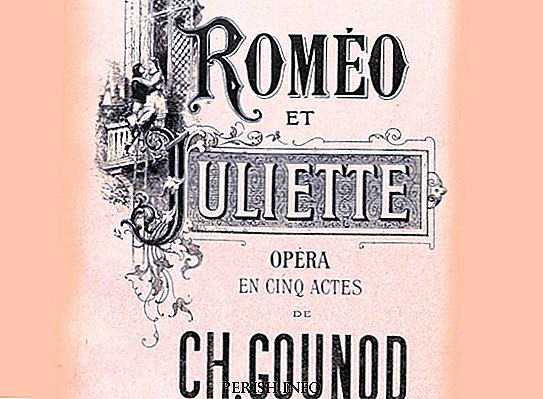
The operas "Romeo and Juliet" and "Faust", in addition to the successful "stage" fate, are united by what lies in the basis of genuine tragedy, which arose in the context of sincere love. The sequence of events in both cases is the path from the first meeting to the fatal climax. As the story progresses, the listener becomes an observer, to whom it becomes apparent how the characters' feelings change in response to the surrounding reality. Here is a place and chastity, and audacity, and despair. The ability to express such an emotional “evolution” with the help of vocal parts and choreographic numbers is one of the main amazing achievements of Charles Gounod as the founder of lyrical drama in French opera.
The premiere took place on the stage of the Paris theater Lyrik. The event took place on April 27, 1867. In the same year, in the summer, the opera was presented in London, and in the fall the performance was performed on the stage of the Music Academy in New York. In the twentieth century in the Soviet Union, the opera was staged in 1919 (Petrograd, Opera and Ballet Theater), in 1941 and 1945 - on the stage of the Bolshoi Theater (the role of Romeo was played by Sergei Lemeshev).
Based on the works of William Shakespeare, a huge number of operas were created, based on "Romeo and Juliet"was written about 20 librettos for various performances. However, among all productions only opera Charles Gounod appears on theatrical scenes with enviable consistency. The secret of the immortality of this work is succinctly and succinctly described by Jules Massenet: "It seems that lovers sing only for themselves, and the public feels like random witnesses who have the opportunity to witness someone’s innermost secrets." Charles Gounod managed to clothe history in music, gave every breath, every look a special lyrical sound, heartfelt and piercing, able to respond with emotion in the heart of every indifferent listener.

Leave Your Comment